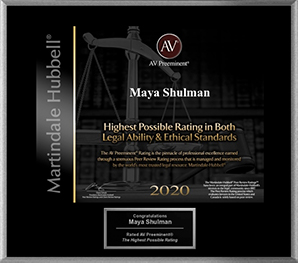As a general rule, the courts of law anywhere in the world conduct the proceedings of a divorce litigation in a way that a suitable decision can be reached without conflict. Although the California courts try to streamline the divorce litigation process as much as possible, there are instances wherein the divorcing parties are not ready to give up without a fight.
In many cases, when one spouse is more financially adept than the other, they might try to employ unethical tactics of using their resources to drive up the overall costs of the lawsuit. The party might do this in a number of ways, including denying cooperation, filing irrelevant motions, and basically trying to delay the court ruling as long as possible. Needless to say, this takes up a lot of the valuable time of the court, and considerably increases the expenses involved in paying off the attorney fees, court costs, and so on.
If this is the case, the spouse that is found guilty of deliberately ‘frustrating’ the divorce settlement might be liable for a punishment that is sanctioned by the court. As such, the guilty partner might be ordered by the court of law to pay for their spouse’s court costs and attorney’s fees out of their own pocket.
What is Family Code 271?
According to the stipulates of Section 271 of the Family Code in California, the court has the legal right to award the attorney’s costs and fees as sanctions on the basis of the extent of misconduct reported by the guilty party. In this case, misconduct refers to intentionally frustrating court policies for the purpose of delaying a settlement in a divorce litigation. According to the statute, the aforementioned award will be explicitly made in the form of a sanction.
In essence, the California courts have the discretion to issue a sanction in the following three cases:
- If a spouse is found guilty of intentionally extending the amount of time it would otherwise take to settle the divorce.
- If a spouse is found guilty of taking deliberate actions in a bid to avoid a divorce settlement.
- If a spouse is found guilty of deliberately driving up the expenses associated with defending or litigating a divorce.
California Family Code Section 271 is typically imposed when a spouse is found guilty of any of the aforementioned practices. As such, you can say that Family Code Section 271 has been designed specifically to not only accelerate the process of divorce settlement, but also encourage the parties involved to engage in meaningful discussions.
When Section 271 is imposed
As stipulated in the California law, a court can impose a sanction on the guilt party, not exceeding the total amount of costs and fees that have been generated as a result of the misconduct.
Additionally, there are certain limitations to when and how a court may impose a sanction against the guilty party. The Courts are required to take into consideration the individual financial situation of both the parties. For this, the court will be required to factor in the assets, liabilities, and income of the parties involved.
In case the court realizes that imposing a sanction on the guilty party would result in an ‘unreasonable burden’ on them, the court might decide against issuing the order. As such, even if the party is found guilty of frustrating the divorce settlement of driving up costs, they will not be required to pay the attorney costs or fees.
In addition to this, a court can impose a sanction only when the guilty party has been duly notified about the Family Code Section 271 request.







